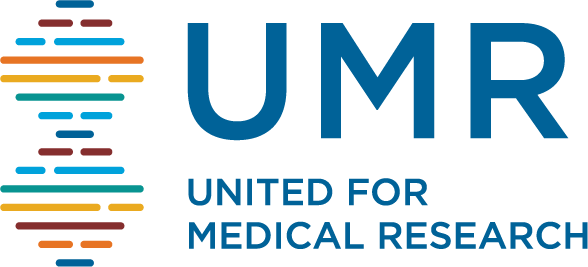September 20, 2012
MAJORITY OF LIKELY VOTERS OPPOSE ACROSS-THE-BOARD CUTS IN 2013
More than half (54%) say it is important that the U.S. maintain world leadership in research
September 20, 2012 – As the so-called “fiscal cliff” approaches in January, a majority of likely voters say that across-the-board cuts are not the right way to reduce the federal budget deficit, according to a new national public opinion poll commissioned by United for Medical Research and Research!America and conducted by JZ Analytics. In addition, 49% of likely voters (a plurality) agree that our nation should not scale back medical research, as the automatic cuts scheduled for 2013 would result in a drop of more than 2,300 medical research grants across the country.
“Most Americans are adept at making their own tough budget decisions and are sensible about cutting government waste,” said John Zogby, senior adviser, JZ Analytics and founder of the Zogby Poll. “But they prefer a scalpel over random chops with a meat axe, particularly for medical and health research.”
“Research conducted at the National Institutes of Health (NIH) plays a vital role in the lives of our children and in the lives of families across the country who are affected by diabetes,” said Anastasia Albanese O’Neill, an American Diabetes Association volunteer from Florida, whose daughter has type 1 diabetes and whose family participates in NIH clinical trials. “Across-the-board cuts to federal programs could prove disastrous in the fight to Stop Diabetes® by slowing the advancement of diabetes research. Decreased funding to NIH means these programs will suffer, causing a delay in finding a cure and reducing the development of technology that could greatly improve the lives of those like my daughter.”
Poll highlights include:
- 51% say that across-the-board cuts are not the right way to reduce the deficit
- 49% agree that we should not scale back funding for medical research
- 54% say it is important that the U.S. maintain world leadership in research
- 59% doubt U.S. leadership in science and technology in 2020
- Less than half (44%) are aware that medical research takes places in all 50 states
- Nearly a third (32%) say across-the-board cuts can have unintended consequences for both the defense and non-defense budgets, and neither should be cut in this manner.
“Unfortunately, federal investment in NIH funding has declined in real terms over the last decade and is now below 2001 levels when adjusted for inflation,” said Vincent Forlenza, Chairman, CEO and President of BD (a member of United for Medical Research). “With sequestration layered on top of this erosion in federal investment in biomedical research, top scientists running some of our nation’s leading academic research centers are not pursuing research using advanced technologies manufactured by BD and other US companies.”
“Across the board cuts for medical research will trigger unintended consequences that will impact millions of patients and companies on the verge of developing new treatments to combat disease,” said Mary Woolley, president and CEO of Research!America. “Our polling shows that likely voters are fully aware of the fiscal challenges facing the nation, but feel strongly that funding for medical research should be a priority for candidates and elected officials.”
Research commissioned earlier this year by United for Medical Research found that a 7.8% across-the-board cut to NIH funding would result in 33,000 fewer jobs across the United States, as well as a $4.5 billion decrease in economic activity. And these estimates are conservative; the newest estimates indicate that research funding would actually be cut by 8.2%. To see the state-by-state distribution of these job losses, visit www.unitedformedicalresearch.com/nih-in-your-state.
“As these recent findings illustrate, funding for NIH fuels a vast medical research ecosystem that will suffer if these cuts are enacted,” said Carrie Wolinetz, president of United for Medical Research. “And when it comes to protecting American lives, a $2.6 billion cut to the NIH budget would be devastating, equivalent to eliminating what NIH spends in one year researching heart disease, diabetes, hepatitis and spinal cord injuries combined.”
The National Public Opinion Poll was conducted online in September 2012 by JZ Analytics for Research!America, with support from United for Medical Research. The poll has a sample size of 1,014 likely U.S. voters with a theoretical sampling error of +/- 3.1%. The full poll results are available online.
About United for Medical Research:
United for Medical Research represents leading research institutions, patient and health advocates and private industry, joined together to seek steady increases in federal funding for the National Institutes of Health. The coalition groups consist of the American Cancer Society Cancer Action Network, American Diabetes Association, American Heart Association, Association of American Universities, Association of Public and Land Grant Universities, BD, Biotechnology Industry Organization, Boston University, Harvard University, Johns Hopkins University, Life Technologies, Massachusetts Institute of Technology, Melanoma Research Alliance, PhRMA, Research!America, Roche Diagnostics, Stanford University, The Endocrine Society, Thermo Fisher Scientific, University of Pennsylvania, University of Southern California, Vanderbilt University, and Washington University in St. Louis. Visit www.unitedformedicalresearch.com
About Research!America
Research!America is the nation’s largest nonprofit public education and advocacy alliance working to make research to improve health a higher national priority. Founded in 1989, Research!America is supported by member organizations that represent the voices of 125 million Americans. Visit www.researchamerica.org.
For media inquiries, please email contact@unitedformedicalresearch.com
###
